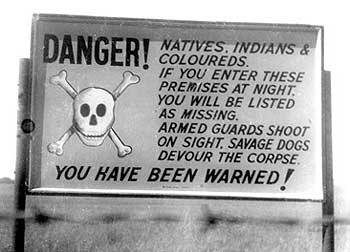Throughout the writer’s fortnight journey, I first listened to Ms Jone’s story where she experienced apartheid and racial injustice in SA. I initially came not having much backstory of this journey, thus I was curious to get further insight into it. Ms Jones opened her speech by addressing the three main elements that had most effected her in this period of apartheid; Bannings, Boycotts, and Brutality. She first explained how bannings in SA went to far extents. Technologies such as TV, music and records were banned as well as books. Such bands were initially put in place to form one perspective- the “right” one, eradicating the others. SA at the time was shaping its narrative, suppressing unaligned thoughts. Secondly, Ms Jones talked about brutality in SA. She emphasised how so many blacks were rationally segregated through ultimate stereotypes and prejudice from the whites. On the presentation, a poster written by whites stated “Disobey the laws, you will be whipped or prisoned”. This message was evidently aimed towards the blacks and we see how the whites were aiming to “scare” the whites into such punishments, in order for them to obey. Thirdly Ms jones adressed the issue of boycotts. She said how globally, many organisations and countries were boycotting SA due to such conflict and irrationality within the country. Consequences were restricted travel for individuals and economically, no investments/trade was negotiated with SA. We see how the country was in an utter crisis of social, political, and economical discrimination.
From such experience living throughout this issue, Ms Jones learnt a lot. She claimed how important it was to “not be bystanders when you face a serious issue”. She said this as she felt she hadn’t done enough to support such rights of the blacks and social equality. Ms jones also stated her memories- she told us how important one of her history teachers had been as she had been the one to inspire Ms Jones to take concern of the issue and make better sense and understanding of the issue. She also remembered how she was in a white girls school with all its needs- and how the social class and economy diffrenciated so much between the white and black schools. She said how seeing the size, and coniditions of classes with so many children, had shook her, and really affected her. Overal she stated that having lived throughout this issue of apartheid, she says that it has shaped her personality and who she individually is, and is part of why she came to this school- full of diversity and acceptance of contrasting cultures.